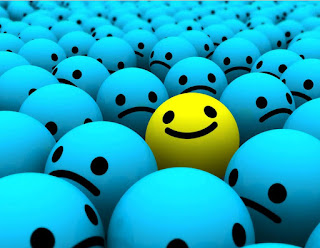Stress- A necessary evil?
Stress- A necessary evil?
Khush hai vahi jo thoda betaab hai…. Lyrics by Javed Akhtar often seem to answer my dilemma or maybe I am interpretating it wrong? Here’s some food for thought…
When I think of the word ‘stress’, it being overly used lately, the first thoughts are of several quotes I would’ve read or heard aiming at philosophically explaining this state of mind.
The strongest one comes to my mind is a quote I read at a Monastery in Nepal, ‘Reality is the leading cause of stress’. This really struck a chord. Our desire to reject the reality as it is and to constantly aspire at changing it to what we believe should be ideal does cause immense friction. In my article, UNACCEPTABLE Theory of Motivation, I attempted to catch up on the idea- ‘When everything around a person is acceptable, that person is not motivated to do ANYTHING… When there is no desire to Change anything around, there is no desire to do anything, there is NO DESIRE TO REJECT ANYTHING, nothing around is UNACCEPTABLE… THAT IS WHEN WE HAVE BLISS, WE HAVE PEACE OF MIND…’
However, on the flip side, I remember seeing an interesting advertisement by Delta airlines- 'The ones who truly change the world, are the ones who can't wait to get out in it.’
Over the years I’ve often wondered on the balance between accepting reality and changing it for ‘better’. As Wally Lamb said- ‘Change what you can, accept what you can't, and be smart enough to know the difference.’ However, the smartness part of knowing the difference is where the rubber hits the road. Understanding what is practically changeable and what is not is highly subjective and hence something may be extremely stressful for someone but wouldn’t break a sweat for somebody else.
One of the basic challenges I have observed is the foundation imbibed about how an ‘ideal’ life and world should be. The race to keep constantly growing in life or even to behave under a strict social norm or may be even to have the right environment as a constant, forever, often turns out to be impractical ideals we strive to achieve. Such ideals create immense dissatisfaction and lack of gratitude for what’s at hand. No matter how close we get to the ideal, the very definition of ideal state is something driven by constant pursuit.
On the other hand, simply ‘giving up’ hope of attaining any betterment of life does not go down with basic human nature. In the West Wing episode "Galileo" (2000), Sam Seaborn says, ‘Cause it's next. 'Cause we came out of the cave, and we looked over the hill and we saw fire; and we crossed the ocean and we pioneered the west’. Aspiring to reach to ‘next level’ is a basic human trait and it cannot be parted with.
So, coming back to Wally Lamb’s words of being smart enough to know the difference, is probably just a pursuit to find the right balance. As teaching in Buddhism says, ‘according to Gautam Buddha, a person should avoid the two extremes of indulgence in worldly pleasure and the practice of strict abstinence and asceticism. Therefore, he recommended 'Madhyam Marg' or the middle path for his follower.’ In other terms when we say someone is in their ‘comfort zone’, it does not really mean doing the same thing over and over again. Stagnancy leads to monotonous discomfort. Alternatively living an adventurous life also leads to constant unrest of facing something new every moment, with no sense of stability and consistency. ‘Comfort zone’, in the most practical way, is doing and learning something new having a sense of security and comfort at the same time.
This still keeps me wondering if the whole journey is filled with ambiguity and uncertainty with only way to balance as pursuit, is it even possible to keep stress away? Or speaking in other terms, do we even want to keep stress away?
‘How do young ones know how much to drink unless they are overdrunk a few times!’
The experience of stress is extremely difficult for body, mind, and soul. It stretches all our limits and forces us to go beyond hampering our physical, mental, and emotional health. However, so is the other extreme. The feeling of no hope or despair, the surrender to undesired reality with no optimism of a ‘better’ future also has extreme impact on all aspects of life. Of course, we all strive to not be at any of the extremes, and of course we want to be ‘smart’ enough to know the difference between what can be changed and what not, but this desire to attain and sustain the balance is indeed a pursuit. Apparently, occasional stress is a necessary inevitable evil, or is it?


Comments
Post a Comment